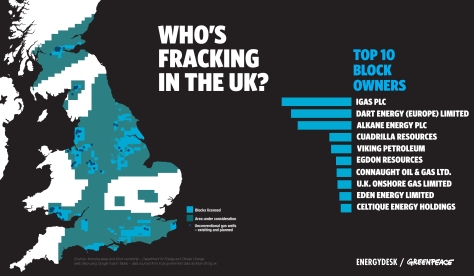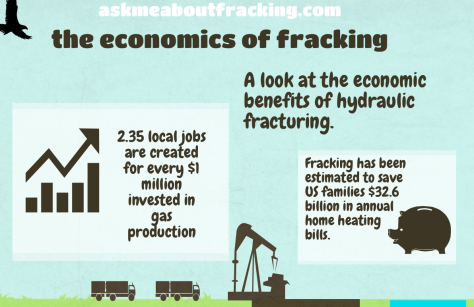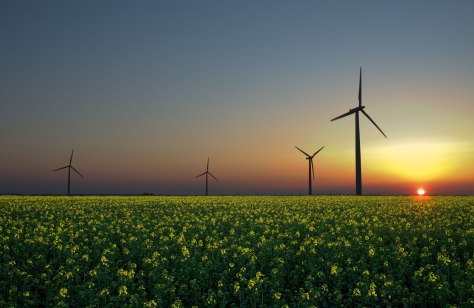I’ve been seeing an increase of stories in the news recently about ordinary people rising up, and standing up against plans for fracking in their local area. Using assertive, yet relatively peaceful, campaigning method; I’ve seen everyone from passionate, student activists to concerned, middle-aged housewives taking to the streets with placards, or writing forceful letters of objection to their MPs. This subject is a hot bed for debate in the UK right now, and everyone’s in on it.
But I must admit, until not long ago, I had largely been oblivious to what fracking actually was; simply relaxing into the view that it was something that was bad for the environment but too technical for me to understand. I’m guessing I’m not the only one to shy away from the more industrial side of sustainability, so I thought a “Fracking in a nutshell” post might be helpful! (plus I’m a massive Battlestar Gallactica fan so have been dying to over use the word Frack for years!)
OK, so what is fracking?
Put simply, fracking is an industrial process of drilling down deep into the earth to create new pathways, or use existing channels, in order to release gas and oil for use as an energy supply. This process involves drilling vertically or horizontally into a shale rock layer and blasting a high-pressure mix of water, sand and chemicals into the rock to release the gas and oil inside.
About half of this mixture comes back to the surface and needs to be treated, whilst the other half stays underground where its movement from there on-wards is uncontrolled.

A handy site for a much more informed description is the aptly named: www.what-is-fracking.com
Fracking in the UK
Estimates of how much shale gas is under the UK differ greatly, but reserves could be substantial, especially in the north of England. key areas currently being investigated are parts of Lancashire; the Weald in South East England running roughly from Kent through Sussex to Hampshire; the East Midlands and parts of Northern Ireland.
Whilst many areas of the UK are already covered by licences allowing fracking, the general public appears to be pushing back quite forcefully. You can view a map here of current site applications.

As reported this week, analysis conducted by The Guardian has revealed that fracking is set to be banned on two-fifths of the land in England (equating to 60% of English landmass) being offered for shale gas exploration by the government. This ban could be a significant blow to the UK’s fracking industry, which The Guardian say: “David Cameron and George Osborne have enthusiastically backed.”
What are the advantages of fracking?
From reports and articles I have read, it appears there are some strong arguments for why fracking is the way forward in sourcing future energy supplies. As fracking opens up access to hard to reach resources of oil and gas, it can significantly increase domestic supplies, whilst keeping the cost of gas down (though this is debated!). It’s estimated that recent fracking in the US and Canada has offered gas security for about 100 years.
Some also argue that it is in fact beneficial to the environment; as fracking in North America has presented the opportunity to continue to meet the demands of electricity consumption whilst halving the CO2 emissions made from coal.

Industry suggests (though we shall take their opinions with a pinch of salt…) that fracking of shale gas could contribute significantly to the UK’s future energy needs. However, a report by the Energy and Climate Change Committee in April 2013 pointed out that shale gas in the UK may well help to secure energy supplies, but not necessarily bring down gas prices.
So why is fracking controversial?
So, if fracking could offer a source of energy, reduce coal CO2 omissions and, to a level, reduce domestic costs…why are people so up in arms about it? It all boils down to three main issues:
Water:
The huge amount of water used in the drilling process – which must also be transported to the fracking site – has a significant environmental impact. Not only does this have damaging effects on already shortening water supplies, but it also inadvertently produces a big old carbon footprint in the process.
In addition, some are concerned that potentially carcinogenic chemicals used in the fracking process may escape and contaminate groundwater around the site; both on top and under the ground. Where fracking is close to areas of habitation, risk of water and crop contamination is a concern not just for wildlife, but also human health too.
It is important to note, just for balance in the argument, that in response to campaigners arguments for this fear of water contamination, the UK Government insists its tougher regulations mean none of that happens in the UK.
Earthquakes & environmental damage:
Drilling deep into the ground and breaking up rock, to extract natural gases, is generally damaging for the landscape of an area. Many local residents campaigning against fracking are doing so simply out of concern for their surrounding countryside and the effect it will have on the land; both with the drilling site itself, and the construction of new roads leading to the site.
There are also worries that fracking can cause small earth tremors; of which two small earthquakes of 1.5 and 2.2 magnitude have already hit the Blackpool area in 2011 following fracking.
Renewables:
Finally, environmental campaigners suggest that fracking is simply distracting energy firms and governments from investing in renewable sources of energy, and encouraging continued reliance on fossil fuels. Regardless of its effects on the environment now, it seems a no brainer that if fracking is not sustainable for the future, we should really be concentrating our efforts on long term solutions like wind, solar and wave power.

Friends of the Earth suggest this is also a popular view of the UK public: with 85% of people wanting to see more energy produced from renewable sources and two-thirds wanting renewables to be providing more of their electricity in 10 years. This is compared to just 2% for gas.
It’s also worth having a quick read of The Guardians article “Fracking hell: what it’s really like to live next to a shale gas well” including an interesting film highlighting how fracking has affected one local resident in Texas.
Needless to say, its a tricky subject with many conflicting views both for and against fracking. With Greenpeace, Friends of the Earth, Artists Against Fracking and even bigger brands like the Co Op all campaigning against the industry, only time will tell how far fracking firms and The UK Governement’s plans come to fruition.
What are your thoughts on fracking?
Further Reading:
- http://www.natureworldnews.com/articles/9011/20140912/the-pros-and-cons-of-fracking.htm
- http://www.theguardian.com/environment/2015/feb/02/fracking-set-to-be-banned-from-40-of-englands-shale-areas
- http://www.natureworldnews.com/articles/9011/20140912/the-pros-and-cons-of-fracking.htm
- http://www.foe.co.uk/sites/default/files/downloads/fracking_summary_2013.pdf
- http://www.sciencedirect.com/science/article/pii/S0301421511001893
- http://www.greenpeace.org.uk/climate/fracking
- http://www.co-operative.coop/our-ethics/our-plan/protecting-the-environment/clean-energy-revolution/fracking/
- http://www.what-is-fracking.com/
- http://www.theguardian.com/environment/2015/feb/02/fracking-set-to-be-banned-from-40-of-englands-shale-areas
- http://www.dangersoffracking.com/


Thank you for this post. I had not really understood the ins and outs of fracking, you explain it very well and give a balanced view.
LikeLiked by 1 person
Thanks Susan, It’s a tricky subject and I could have kept on researching for hours but I know a lot more about it than I did this morning! 🙂
LikeLike
Agreed, thank you for bring this to my attention too! If you’re so inclined, nuclear energy is also another interesting topic to cover. =) Have a wonderful weekend!
LikeLike
Thanks for bringing this topic up! I will have to come back and look into some more of the links you’ve shared.
Great info 🙂
LikeLike
Reblogged this on Mommy Emu and commented:
Are you confused about Franking and have no idea what all the fuss is about? A Lazy Girl Goes Green explains what it’s all about simply and beautifully.
LikeLike
I am a professional sustainability consultant and energy manager with an engineering degree, so I understand all the ins and outs of fracking from both the environment and technical side. First, one key item that is missing from the list is that the methane that is released from the fracking process is quite substantial and methane is several times more powerfully impacting to global warming than CO2. I’ve heard estimates up to 20 times worse. Many people do not understand this, and there certainly hasn’t been enough media coverage on this fact. You are correct that all the other hazards like water, earthquakes and ecosystem destruction are tremendous. Additionally, to replace electricity with natural gas would require HUGE amounts of infrastructure changes, which is just not economical or environmentally friendly.
Lastly, I get so tired of the whole energy debate without discussion of reducing. Even renewables take a tremendous amount of resources and rare earth mining to manufacture. And in some cases, it can take up to 8 years to pay back the energy that was used to make and distribute these sources. Not to mention other environmental hazards.
As an engineer and sustainability specialist, I can assure you that we can not engineer our way out of this mess we are in. It is time to give up our cars and live in smaller, high density housing. Sorry to be so blunt, but many people are finding that a simpler life is a happier, healthier and wealthier one also! 🙂
LikeLike
Really useful post! It’s very important that we try to understand the issues rather than just nod yes or no to new technology following the lead of a person or organisation we normally agree with.
A couple of additional thoughts. Even if we get 100 years of gas due to fracking, is 100 years (maybe three to four generations) really our definition of sustainable?
The 100 years of gas estimates are highly speculative. The gas, like oil, in industry tends to work like this. Somebody gets an exploration licence, carries out exploration in a number of sites and based on this data extrapolates the potential volume of gas available from the licensed site. The exploration companies rarely actually develop the site for production purposes. They make their money by QUICKLY selling on their rights to explore and develop so it is in their interest to be optimistic in their extrapolations.
Finally, the most efficient and greenest unit of heating and electricity (which is ultimately why we extract gas) is the unit of electricity that we do not use. The focus on fracking not only detracts attention and resources from renewables, it also detracts from ‘energy efficiency’. If a fraction of the resources devoted to fracking were used to deal with improving the energy efficiency of our housing stock we could slash our demand, reducing long-term cost and improving energy security.
LikeLike